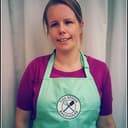The Great British Bake Off effect: How to start a bakery from home
)
Posted: Tue 3rd Oct 2023
If you're a talented baker and are keen to share your skills with a wider audience, you might be considering starting a baking business from home.
Bread and cake-making business numbers increased by 230% between 2019 and 2021. This rise was partly inspired by The Great British Bake Off.
Rhiannon Abbott, Enterprise Nation member and founder of The Epsom Bakehouse, shares practical tips to consider before you take the plunge.
Identify your niche
It's important to think about the products you'll sell and what will set you aside from the competition. This is especially true in your local area, where your early customers are likely to be located.
Research what's available both locally and further afield. Can you do something different that customers will still want? Maybe you'll use ingredients that you've sourced from local independent suppliers, or you'll concentrate just on showstopper celebration cakes.
Being able to demonstrate that you can make a few products in your chosen area really well is a good way to engage potential customers.
When and where will you make your products?
You're likely to be baking and decorating in your home kitchen, somewhere that other people may also use to prepare and eat meals.
As a result, you'll need to be realistic about when you can bake uninterrupted, and how much you can make in that time.
Consider factors such as allowing time for products to cool before decorating, and how many products you can bake at once in your oven. It's good to think about this in detail as you may have less time than you thought.
Food safety
Your new business will need to comply with the relevant regulations as set out by the Food Standards Authority. This will include being registered with your local council's environmental health department.
Most councils will have an online form for you to complete, which you must do at least 28 days before you want to start selling food.
The local authority may then want to inspect your home kitchen before giving you a food hygiene rating. The inspection will look at things including the following:
How and when you clean your kitchen – for example, before you produce any food for sale
Where you source and store ingredients, and the records you keep
Food hygiene best practice
That no pets are allowed in the kitchen when you're producing food for sale, and that no toilet opens directly onto the kitchen area
If you're unsure about any aspect of registering your home kitchen, give your local council a call before proceeding with your plans. They should be happy to advise.
Marketing your new business
Getting the word out about your new business is crucial if you want to find new customers. Luckily, cakes and bread tend to be popular!
When starting up, consider holding some sampling sessions where potential customers can try your products. You could have an open evening at your house and invite the neighbours round, or use a stall at a local market or event to trial your products. Collect feedback and use it to refine your products to what your customers want.
Make sure you have information to give out to people, saying what you're going to produce and how they can order from you.
Watch this webinar to discover how to leverage social media and content marketing to grow your brand and attract more customers:
Get online
Having an online presence is crucial for today's businesses. As well as raising your business profile, your customers will expect to find and contact you online.
You can also use social media channels to:
showcase your products
post details of when and where you're selling
build connections with other local businesses
find potential local customers
use great images and engage your customers
Relevant resources
Get business support right to your inbox
Subscribe to our newsletter to receive business tips, learn about new funding programmes, join upcoming events, take e-learning courses, and more.
Start your business journey today
Take the first step to successfully starting and growing your business.
Join for free
